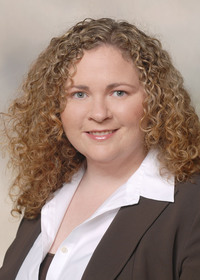Information Possibly Outdated
The information presented on this page was originally released on August 30, 2016. It may not be outdated, but please search our site for more current information. If you plan to quote or reference this information in a publication, please check with the Extension specialist or author before proceeding.
MSU personnel lend assistance to flood victims
STARKVILLE, Miss. -- After nearly 3 feet of rain in two days caused historic flooding and widespread damage in Louisiana and southwest Mississippi earlier this month, volunteers from Mississippi State University are assisting in relief efforts.
Media reports indicate more than 110,000 homes in Louisiana were affected by flooding and more than 120,000 residents have applied for federal disaster relief funds. Louisiana State University AgCenter Communications reports the disaster will cost the state’s agricultural industry at least $110 million. The most recent assessment from the Mississippi Emergency Management Agency reports 89 homes in Mississippi were either damaged or destroyed.
From delivering hay to cattle farmers to sending personnel to help care for horses, representatives of the Division of Agriculture, Forestry and Veterinary Medicine at MSU are contributing to the disaster response as victims clean up the damage and rebuild. DAFVM includes the MSU Extension Service, Mississippi Agricultural and Forestry Experiment Station, MSU College of Veterinary Medicine, Forest and Wildlife Research, MSU College of Forest Resources and the MSU College of Agriculture and Life Sciences.
Land-grant universities have access to federal capacity grants through the USDA National Institute of Food and Agriculture -- such as Hatch Act, Evans-Allen and McIntire-Stennis funds -- that are matched at the state level and used to ensure equipment and manpower are immediately available in times of crisis.
“MSU and land-grant institutions are uniquely poised to respond rapidly to natural disasters and threats to human life and agriculture,” said division Vice President Gregory Bohach. “The flooding in Louisiana and south Mississippi is one more example of how we are able and ready to help in times of need.”
Extension personnel in Adams and Wilkinson counties have been providing assistance to Louisiana farmers and residents of Crosby, Miss., where widespread flooding forced many community members to evacuate.
“We are calling surrounding counties to see what people’s needs are and responding to them,” said Adams County Extension agent David Carter. “Extension personnel and volunteers with the Mississippi Homemaker Volunteers Club have been delivering supplies in Crosby and clearing out houses. We are trying to address flooding victims’ short-term needs right now and are in the process of planning our long-term response.”
Carter said area producers have sent hay to their colleagues in south Louisiana.
“Producers in low-lying areas lost all their hay and wouldn’t have been able to feed their cattle without assistance from some of our hay growers,” he said.
George Hopper, director of MAFES and dean of the College of Agriculture and Life Sciences, said MAFES faculty and personnel are ready to serve.
“We reached out to our colleagues at the LSU Ag Experiment Station and offered any assistance we could provide from MSU,” he said. “We want them to know our resources are available to them as they determine what assistance they need.”
MSU volunteers are also tending to the needs of animal owners in Louisiana. Dr. Kamille Cormier, a veterinary intern, recently took donations of medical supplies and gift cards to the Louisiana State University School of Veterinary Medicine. She assisted LSU personnel with equine care and volunteered with the animal shelter at the Lamar Dixon Expo Center in Gonzales, Louisiana.
“LSU and MSU are both members of the Gulf States Colleges of Veterinary Medicine Alliance for Disaster Response -- a group of southern colleges of veterinary medicine who came together following the 2010 Deepwater Horizon oil spill to assist each other in disaster preparedness, response and recovery,” said CVM assistant professor Dr. Carla Huston. “We are glad to be able to provide this assistance to our colleagues. We are making arrangements to send another veterinarian with supplies next week if the need is still present.”
Teams of MSU Extension and Experiment Station personnel who want to volunteer to assist in any relief efforts receive Incident Command System training through the Extension Center for Government and Community Development. Trainees have responded many times to disasters both in and out of state, beginning with Hurricane Katrina and including major tornadoes in Tupelo, Smithville and Louisville, as well as severe flooding in Greenville.
“In situations like these, many displaced homeowners see the damage done to their houses, and simply deciding where to begin with the cleanup can be overwhelming,” said MSU Extension Director Gary Jackson. “Trained volunteers, such as the ones the division has the resources to provide, can help victims pick up the pieces more quickly.”
Contact: Dr. Gregory Bohach, 662-325-3006





